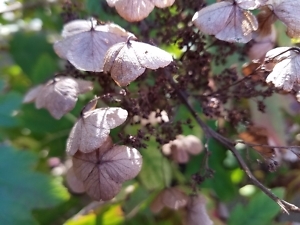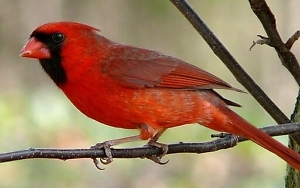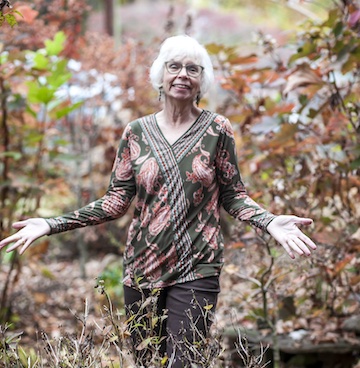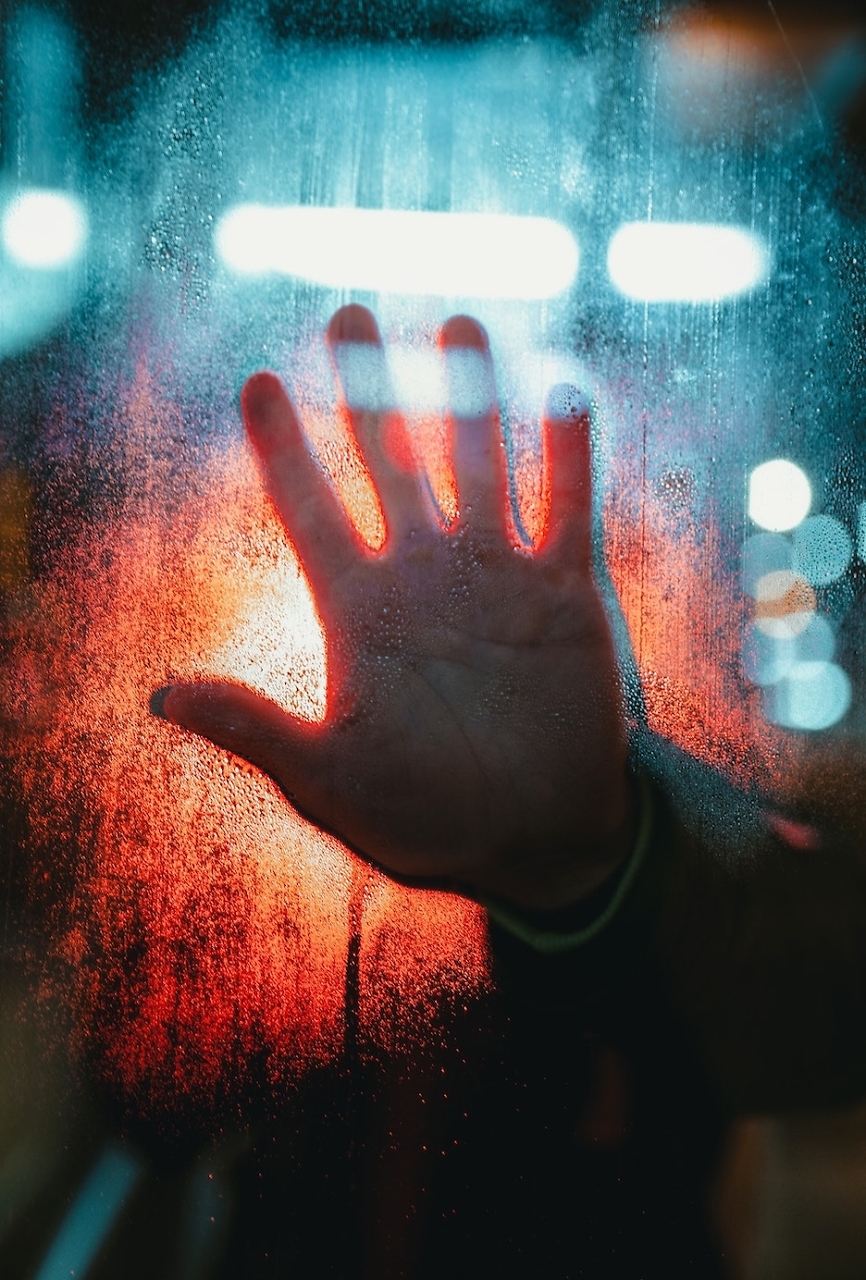Threads That Run So True
Reflections on the universe under our feet
Beautiful and twining for nearly 30 years, my front bed is dying. Two huge oakleaf hydrangeas, normally unkillable, then a rose bush, a baptisia, then, gasp, a luxurious native azalea scrolling like calligraphy. I’ve tried Iron-Tone, Acid-Tone, coffee grounds, eggshells, baking soda. Is it the soil? Critters? Old age? The new irrigation system? Nothing to do but yank them out. And wonder why, especially when all around their companions thrive. What secret Morse is whispered root to stalk to root? What tremorous mystery is alive underground, even when leaves above brown and wither and branches snap at the touch? We forget how intricately we are all connected, even to our yards’ wind-tossed beings that explode pink in April and bronze in October. The Earth/earth is far more sentient than we may believe, a whole universe spinning and birthing and regurgitating right under our noses and feet — these days, erupting more in flame and flood amid our careless, greedy ways. Think pheromones like pollen on the breeze, subterranean mycorrhizal networks passing notes of danger, survival, symbiosis: love us/love us not. Think of the surface I barely break when I imagine this ground I tend and shape is mine. Think of those who travel out of body while sleeping, spirited into other dimensions, tethered to their earthbound selves by a silver cord. And how we are equally tied to the planet itself by gravity not only of physics but our generational flow, that thread that runs so true. My neighbor says to buy the richest gold, cow manure, and spread it on the wounded land. To let it rest and bake in this too-warm fall before spading it in. To not give up on the precious nature from whence we spring and so fitfully live, but to keep digging down.
2

Let’s see how far we get without a man, Judith says, on the heels of her own leak, knowing the art of troubleshooting. We turn the water off and on to the toilets, the sinks, the irrigation system. I turn knobs in the house; she watches the meter race or slow. Then she brings the big gun, the water key, long steel rod whose fisted end grabs the meter bolt to make the harder turn. My neighbor the Master Gardener, Judith is glamorous no matter how sweaty or grimy, in cutoffs, hair roped over her shoulder. In the meter well, the leak is clear as day. Only then do I call the city utility, who naturally says it’s mine to fix. Before the men come — plumber, trench diggers — I kneel on the rose bed soon to be uprooted and press my weight on the key both morning and night; certain times, I turn off the meter to keep it from whizzing away, lest I farewell all that money like an oil gusher’s black gold. I’ve gotten far without a man, cord cut not of my choosing, my path cleared of eggshells and hot coals. I’ve been down with woman’s work for years — down in the cellar’s damp cavern, leaks springing, leading me to the subterranean source from which all questionable blessings flow. Water and water key a kind of doxology: combination of doxa, “glory,” and logos, “a speaking,” an anthem of praise to my own hands and steely nature, grounding myself despite distress, trying not strip the threads of whatever grip I wield. I think of my grandmother’s Glory be, rising before first light to her days hunched at the factory machine. How to praise as worn joints burst deep down. How uncertainty washes over and through me like the old Baptist hymns she sang trembly, deep as the marrow I sucked from the drumstick at her Sunday table. Deeper still, where the only light is the lantern we carry within, where silver springs ripple underground, a language out of body and time, spoken best by a woman on her knees in the muck, in solitary wonder of what rises here below.
3
Nearly invisible in the variegated wands of persicaria, cardinals chip, chip at crimson teardrop flowers. Rose-red males, chestnut females sway as they work their way down the airy spires, aptly named painter’s palette. Males vie for position, scatter leafmeal in brief skirmishes. Females move aside, fluffed or pert. The last easy pickings before first frost, their profuse dinner on the grounds. My late gardens a canvas of swashbuckling color, such glory it blinds my eyes and stops my breath. But dry, dry, dry. No decent rain for almost three months. Even bereft of water, my patch of land illuminates as summer wine and song drain from the leaves in flagrant farewell. What did Goethe say on his deathbed — More light! More light! Soon enough comes winter’s pewter light, seizing all to silhouette: bold holly berries, cardinals like splattered blood on bone branches, snow’s illusory blue cast. The birds’ balletics draw me to the back door, and I am frozen in the dance. Cardinals are said to house the spirits of our departed, their beaks and wingtips lifting the veil of the lee shore, these visitations felt more trembly and acute in fall’s bittersweetness. They dip and thread the otherworld to this one: my father’s watermelon kiss, my grandfather’s smoke rings, my grandmother’s saving grace. Soon enough, I’ll be the lone messenger picking through garden dirt for fallen buds, wearing my own feathered cap, rose-red or chestnut. Cocking my bead eye to a vaguely remembered someone at the door who misses our earthly life together — who, I can only hope, carries the wonder of how blood flows to blood, how we speak each other into being and loving, marking time’s bright scroll with both muck and marvel, even as we turn, turn from spring green to golden to paper-thin on the changing wind.
4

Good fences make good neighbors, Robert Frost famously wrote. Our fence, Judith’s and mine, was a brambled mess for over 30 years, a wall we neighbors agreed on, demarking each side. The sprawl of honeysuckle, spindly holly, privet, and bindweed created a dark shelter for critters, privacy for us. I didn’t mind and left it unchecked — until it encroached too close for comfort, throwing shade on my front bed, like kudzu overtaking the night. The trench diggers I called for my water leak come and clear the tangled swath in an afternoon, leveraging pickaxes until stumps pop in submission from the ground. The sun startles and delights, the suddenly possible. Judith and I feel we have a newfound acre, have grown extra arms and legs, and christen it the Border Garden. Day after day, we meet to walk the line, like Frost and his crusty neighbor who insisted on walling in/walling out — but we hum with plans, a hive of one mind speaking the same language. We are lightbringers, pioneers on virgin land, Eves returning to an Eden reimagined: natives, synchronous color and height, pollinators and cultivars, a migratory pit stop. We plan nothing formal, whatever braids us as a single strong shoulder and hand beyond walls and separation. The chore is planting in soil so long neglected — rock, clay, hairy old roots staking ownership decades longer than I’ve owned my house. I hack through, yanking and cutting what the shovel can’t plumb, toss organic compost in each waiting hole. I tamp nursery plants and transplants alike into their new address, shawl their feet in pinestraw. We cannot know how our vision will bloom, whether we’ve set the beautyberrys too near the hydrangeas, or if there’s room for witch hazel. We cannot claim this border completely because it will twine and breathe as a body apart from any human folly of order. We cannot yet see what glories will rise to our touch, our dreaming, or fail. We can only praise the work itself — and, as the song says, let the mystery be. I do know that inch by inch, season by season, we will repair this ground and create a rich landing place. Any wall Judith and I keep between us will soon ignite in fiery pink, merlot, indigo, ivory. We stand in wonder of how we’ve two-stepped, consciously or un-, a ballet of ninebark, milkweed, buddleia, spicebush, star anise, dogwood, and sarvis — each side bows to the other. We tamp again, we wait. Wait for winter to recede its snowy shore, for warmth to bubble up and out, for the cardinal’s purty, purty, the chickadee’s hey, sweetie. Wait for the apple-green-gold that is springtime to fuse lifeblood into each being that calls this brilliant earth home, us included. There is something that doesn’t love a wall and sends the frozen-ground-swell under it to tumble down what we make of division and brokenness, of boundaries. Something unknowable that threads so true, it can only be a mending wall.

Poet, playwright, essayist, and editor, Linda Parsons is the poetry editor for Madville Publishing and the copy editor for Chapter 16. Her sixth collection, Valediction, contains poems and prose. Five of her plays have been produced by Flying Anvil Theatre in Knoxville, Tennessee. She is an eighth-generation Tennessean.


